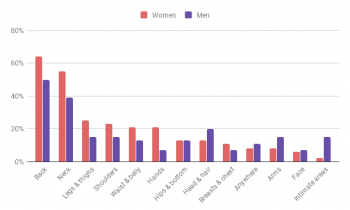[ad_1]
Outlawed now in some places, or only available to tote your purchases at a ridiculous premium, the billions of “T-shirt” bags used every year present a serious waste management problem. Whether blowing across the landscape like synthetic tumbleweeds, floating in the ocean as ersatz jellyfish, or clogging up municipal waste streams, finding a way to deal with them could really make a difference. And finding a bug that eats polyethylene and poops antifreeze might be a great first step in bioremediating the mess.
 As with many scientific discoveries, learning about the useful and unexpected eating habits of the larval stage of the Greater Wax Moth Galleria mellonella can be chalked up to serendipity. It began when biochemist [Federica Bertocchini] cleaned a wax moth infestation from her beehive. She put the beeswax-loving pests in a plastic bag, later finding they had chewed their way out. Intrigued, she and [Paolo Bombelli] ran some experiments using the bugs. They showed the mechanism wasn’t just mechanical and that the worms were digesting the polyethylene, to the tune of 92 mg consumed for 100 worms in 12 hours. That’s about 1,000 times faster than bioremediation with bacteria.
As with many scientific discoveries, learning about the useful and unexpected eating habits of the larval stage of the Greater Wax Moth Galleria mellonella can be chalked up to serendipity. It began when biochemist [Federica Bertocchini] cleaned a wax moth infestation from her beehive. She put the beeswax-loving pests in a plastic bag, later finding they had chewed their way out. Intrigued, she and [Paolo Bombelli] ran some experiments using the bugs. They showed the mechanism wasn’t just mechanical and that the worms were digesting the polyethylene, to the tune of 92 mg consumed for 100 worms in 12 hours. That’s about 1,000 times faster than bioremediation with bacteria.
Furthermore, the bugs excrete ethylene glycol, a useful industrial chemical, in the process. Finally, to see if the process can scale, the researchers showed that a homogenate of wax moth larvae could digest PE sheets. This could lead to an industrial process if the enzymes involved can be isolated and engineered. The letter describing the process is a fascinating read.
While this one may not a classically hackish way to deal with plastic recycling, the potential for this method is huge. We look forward to seeing where this goes.
[Images: César Hernández/CSIC]
[ad_2]
Source link





